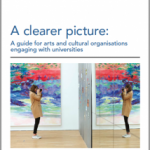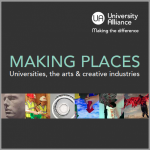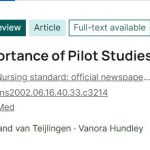 Open access to peer reviewed publications has been anchored as an underlying principle in the Horizon 2020 and is explained in the Regulation and the Rules of Participation. If you are a beneficiary or hoping to be a beneficiary of a Horizon 2020 grant, you need to be aware of your obligations to publish open access. Below are some of the key points taken from Horizon 2020 guidance which can be accessed in full here.
Open access to peer reviewed publications has been anchored as an underlying principle in the Horizon 2020 and is explained in the Regulation and the Rules of Participation. If you are a beneficiary or hoping to be a beneficiary of a Horizon 2020 grant, you need to be aware of your obligations to publish open access. Below are some of the key points taken from Horizon 2020 guidance which can be accessed in full here.
Are you supposed to deposit?
All Horizon 2020 beneficiaries are required to deposit and ensure open access.
What to deposit
- A machine-readable electronic copy of the published version publisher’s final version of the paper, including all modifications from the peer review process, copyediting and stylistic edits, and formatting changes (usually a PDF document)
OR
- A final peer-reviewed manuscript accepted for publication final manuscript of a peer-reviewed paper accepted for journal publication, including all modifications from the peer review process, but not yet formatted by the publisher (also referred to as “post-print” version).
Where to deposit
Researchers should deposit in a repository for publications of their choice. In order to manage and monitor open access compliance, BU request that all authors publish in our institutional repository (BURO) this can be done easily through BRIAN. Further information on how to do this can be accessed here.
When to deposit
Each beneficiary must deposit as soon as possible. To comply with HEFCEs Open Access policy this should be on acceptance of the article.
 When should Open Access be provided
When should Open Access be provided
Each beneficiary must ensure open access to the deposited publication — via the repository — at the latest: (i) on publication, if an electronic version is available for free via the publisher, or (ii) within six months of publication (twelve months for publications in the social sciences and humanities) in any other case.
For open access publishing, researchers can publish in open access journals, or in journals that sell subscriptions and also offer the possibility of making individual articles openly accessible (hybrid journals). Where the case, the Author Processing Charges (APCs) incurred by beneficiaries are eligible for reimbursement during the duration of the action. For APCs incurred after the end of their grant agreement, a mechanism for paying some of these costs will be piloted. In the case of open access publishing open access must be granted at the latest on publication.
Beneficiaries must also ensure open access to the bibliographic metadata that identify the deposited publication. The bibliographic metadata must be in a standard format and must include all of the following:
- the terms [“European Union (EU)” and “Horizon 2020”][“Euratom” and Euratom research and training programme 2014-2018″];
- the name of the action, acronym and grant number;
- the publication date, and length of embargo period if applicable, and
- a persistent identifier.
In all cases, the Commission encourages authors to retain their copyright and grant adequate licences to publishers. Creative Commons offers useful licensing solutions in this regard (e.g. CC-BY, see Creative Commons Licenses).
In the context of the digital era, the notion of’ publication’ increasingly includes the data underpinning the publication and results presented, also referred to as ‘underlying’ data. Beneficiaries must aim to deposit at the same time the research data needed to validate the results presented in the deposited scientific publications, ideally into a data repository, and aim to make open access to this data. But there is no obligation to do so.
 BU has an agreement with Springer which enables its authors to publish articles open access in one of the Springer Open Choice journals at no additional cost.
BU has an agreement with Springer which enables its authors to publish articles open access in one of the Springer Open Choice journals at no additional cost. 


 Following a successful trial period and in line with the commitments made in the Council’s current delivery plan, the Arts and Humanities Research Council (AHRC) has decided to incorporate provision for International Co-Investigators into its core eligibility requirements and standard funding terms and conditions. Therefore, following the expiration of the current trial period on 31st December 2016, applicants will be able to continue to include international co-investigators on research grant, networking and follow-on proposals in line with the current provisions under the trial as outlined in AHRC’s
Following a successful trial period and in line with the commitments made in the Council’s current delivery plan, the Arts and Humanities Research Council (AHRC) has decided to incorporate provision for International Co-Investigators into its core eligibility requirements and standard funding terms and conditions. Therefore, following the expiration of the current trial period on 31st December 2016, applicants will be able to continue to include international co-investigators on research grant, networking and follow-on proposals in line with the current provisions under the trial as outlined in AHRC’s 

 Open access to peer reviewed publications has been anchored as an underlying principle in the Horizon 2020 and is explained in the
Open access to peer reviewed publications has been anchored as an underlying principle in the Horizon 2020 and is explained in the  The
The  The Department for International Development (DfID) has published a
The Department for International Development (DfID) has published a  The
The  For those of you who haven’t yet heard about the Research and Knowledge Exchange (
For those of you who haven’t yet heard about the Research and Knowledge Exchange ( The
The 
 ‘Research Fingerprinting’ is a new development on the Research Professional platform that delivers highly relevant funding opportunities to researchers.
‘Research Fingerprinting’ is a new development on the Research Professional platform that delivers highly relevant funding opportunities to researchers.

 How many acronyms can you fit in one title? The EPSRC are holding two two-day
How many acronyms can you fit in one title? The EPSRC are holding two two-day 










 1 WEEK REMAINING- Postgraduate Research Experience Survey (PRES) 2024
1 WEEK REMAINING- Postgraduate Research Experience Survey (PRES) 2024 Conversation article: How 2-Tone brought new ideas about race and culture to young people beyond the inner cities
Conversation article: How 2-Tone brought new ideas about race and culture to young people beyond the inner cities Upcoming 3C Event – PGR Culture, Community & Cake
Upcoming 3C Event – PGR Culture, Community & Cake Paper with 160,000 reads
Paper with 160,000 reads Apply for up to £1,000 to deliver an event and take part in a national festival of public engagement with research
Apply for up to £1,000 to deliver an event and take part in a national festival of public engagement with research MSCA Postdoctoral Fellowships 2024
MSCA Postdoctoral Fellowships 2024 Horizon Europe News – December 2023
Horizon Europe News – December 2023